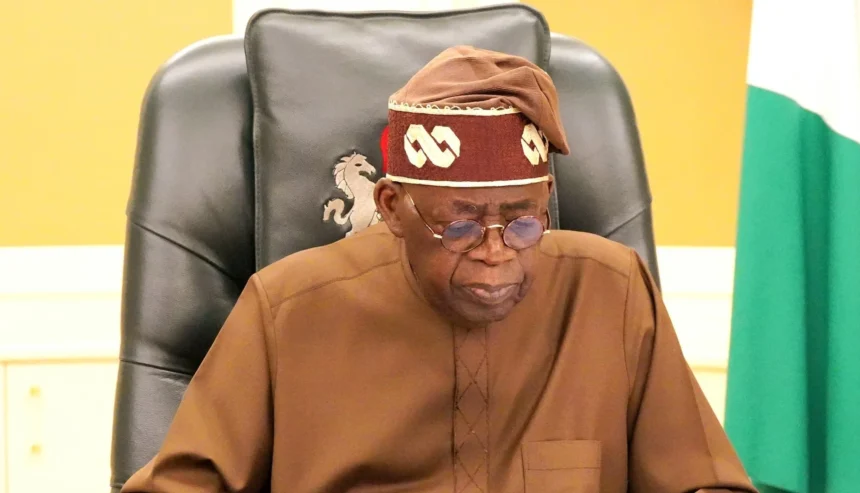President Bola Ahmed Tinubu has withdrawn the pardon previously granted to 175 convicts, including kidnappers, drug traffickers, and fraudsters, following public backlash over the initial clemency list released on October 11, 2025.
The decision emerged after a review ordered at the National Council of State meeting on October 9, 2025. In a statement on Wednesday, the President’s Special Adviser on Information and Strategy, Bayo Onanuga, explained, “Consequently, certain persons convicted of serious crimes such as kidnapping, drug-related offences, human trafficking, fraud, unlawful possession of firearms/arms dealing, etc., were deleted from the list. Others who had been hitherto pardoned in the old list had their sentences commuted.”
The Presidency clarified that the reassessment followed consultations with the Council of State and public input, conducted “in furtherance of the President’s discretionary powers under Section 175(1) and (2) of the 1999 Constitution (as amended).”
“This action became necessary in view of the seriousness and security implications of some of the offences, the need to be sensitive to the feelings of the victims of the crimes and society in general, the need to boost the morale of law-enforcement agencies, and adherence to bilateral obligations,” the statement added. It also highlighted that “the concept of justice as a three-way traffic for the Accused, the Victim, and the State/Society also guided the review.”
The move comes three weeks after criticism erupted over the inclusion of Maryam Sanda, convicted in 2020 and sentenced to death for killing her husband, Bilyaminu Bello, the son of a former PDP national chairman.
Drug offences accounted for 29.2 per cent of those initially pardoned, the largest category, followed by illegal mining (24 per cent), then homicide, corruption, and human trafficking. The Nigerian Bar Association’s Section on Public Interest and Development Law had urged the President to revoke what it described as “a grave error of judgment,” noting that “granting mercy to a convicted murderer sends the wrong signal about accountability and deterrence.”
The Attorney-General of the Federation and Minister of Justice, Lateef Fagbemi (SAN), confirmed that the earlier list was under review. In an official gazette dated October 23, 2025, the revised instruments reduced beneficiaries from 175 to 120, with several high-profile individuals, including Maryam Sanda, reassigned under reduced prison terms.
Fagbemi stated that the review followed the President’s approval and due-process examination of the initial recommendations from the Presidential Advisory Committee on Prerogative of Mercy. He added, “During this final review, a few persons earlier recommended were found not to have met the requirements and were accordingly delisted, while in some other cases, sentences were reviewed and reduced to reflect fairness, justice, and the spirit of the exercise.”
President Tinubu also directed the relocation of the Secretariat of the Presidential Advisory Committee on Prerogative of Mercy from the Ministry of Special Duties to the Federal Ministry of Justice. New guidelines for exercising the prerogative of mercy were mandated, including “compulsory consultation with relevant prosecuting agencies” before any list is approved.
“This will ensure that only persons who fully meet the stipulated legal and procedural requirements will henceforth benefit from the issuance of instruments of release,” the statement said, noting that the approved list has been transmitted to the Nigerian Correctional Service for implementation.
Document received by The Punch shows the review, contained in four separate documents: Pardon, Clemency, Reduced Terms of Imprisonment, and Commutation of Death Sentences. It removed convicts of serious crimes such as drug trafficking, kidnapping, human trafficking, and armed robbery from the original list, retaining only 15 full pardons primarily for historic or non-violent cases.
Maryam Sanda, previously slated for a full pardon, now faces a reduced prison term of 12 years. Several drug convicts lost clemency altogether.
The final pardon list includes 15 names, down from 82 initially, retaining four corruption-related beneficiaries: Anastasia Nwaobia, Hussaini Umar, Ayinla Alanamu, and Farouk Lawan, alongside historic figures such as Herbert Macaulay, Maj.-Gen. Mamman Vatsa, and the nine Ogoni activists executed in 1995, including Ken Saro-Wiwa.
Other inmates had their sentences reduced for good conduct, remorse, and rehabilitation, including those convicted of manslaughter, armed robbery, drug offences, fraud, and unlawful possession of firearms. The reductions also considered vocational training, age, health, and educational improvement.
The Presidency also commuted the death sentences of Emmanuel Baba, Abubakar Usman, Khalifa Umar, and Mohammed Umar to life imprisonment after reviewing their records, highlighting Nigeria’s gradual shift toward restorative justice rather than purely retributive measures.
The administration reaffirmed its commitment to judicial reforms and the improved administration of justice, acknowledging public feedback and engagement in the review process.
The Punch

